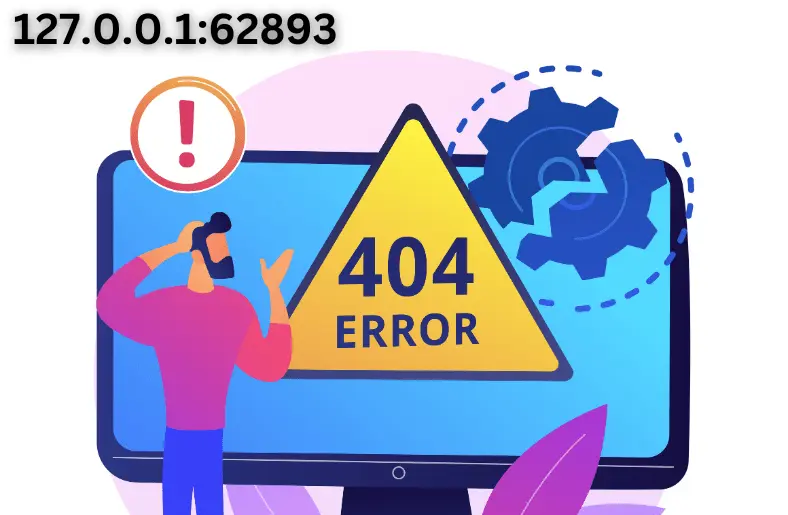“127.0.0.1:62893” is a unique local host address essential for local development. This address allows developers to test and debug applications on their local machines. Consequently, it ensures everything works correctly before moving to a live server. Moreover, using “127.0.0.1:62893” helps isolate issues in a controlled environment. Therefore, it prevents potential problems in the production environment. Debugging is crucial in local development, as it ensures the stability and functionality of applications. In addition, it helps identify and fix errors early in the development process. Hence, the importance of debugging cannot be overstated. It ultimately leads to a smoother and more efficient development workflow.
Understanding “127.0.0.1:62893”
Understanding “127.0.0.1:62893” requires grasping the basics of localhost and port numbers. Localhost, typically represented as 127.0.0.1, serves as a loopback network interface, enabling communication within a single device. Port numbers, such as 62893, act as virtual endpoints that applications use to establish connections. In a development environment, “127.0.0.1:62893” plays a crucial role, allowing developers to test applications locally before deploying them. This address facilitates efficient testing and debugging processes by providing a controlled environment for software evaluation. By comprehending the significance of “127.0.0.1:62893,” developers can streamline their development workflow and ensure the robustness of their applications before they go live.
Common Debugging Scenarios
Port conflicts arise when applications vie for the same port, requiring resolution by assigning different ports. Firewall issues obstruct communication by blocking specific ports; verify firewall settings. Network interface problems, like misconfigurations, disrupt local communication; troubleshoot by verifying adapter settings. Server-side issues, such as misconfigurations or crashes, impact local communication; identify and address underlying problems. Application-specific bugs cause unexpected behavior, requiring debugging methods like reviewing logs and applying updates.
Tips for Effective Debugging about “127.0.0.1:62893”
Utilizing Diagnostic Tools: Diagnostic tools like Netstat and lsof are invaluable for identifying network issues and understanding port usage. Netstat provides information on network connections, routing tables, and interface statistics, while also listing open files and the processes that opened them. By using these tools, developers can pinpoint potential problems and troubleshoot them effectively.
Implementing Best Practices: Implementing best practices for code debugging is essential for efficient troubleshooting. This includes writing clear and concise code, using meaningful variable names, and employing comments to explain complex sections. Additionally, adopting test-driven development (TDD) principles can help catch bugs early in the development process, saving time and effort in the long run.
Importance of Regular Updates and Maintenance: Regular updates and maintenance are crucial for ensuring the stability and security of software applications. Developers should regularly review and update their codebase to address bugs, security vulnerabilities, and performance issues. By staying proactive with updates and maintenance tasks, developers can minimize the risk of encountering critical issues and keep their applications running smoothly.
Security Considerations
Ensuring Data Protection: Data protection is paramount in any security strategy. Encrypt sensitive information to prevent unauthorized access.
Implementing Access Controls: Access controls restrict access to resources based on user roles and permissions, enhancing security.
Regular Security Audits: Conduct regular security audits to identify vulnerabilities and weaknesses in your system.
Updating Security Measures: Regularly update security measures to address emerging threats and patch known vulnerabilities.
Educating Users: Educate users on security best practices to prevent social engineering attacks and phishing attempts.
Securing Network Communications: Secure network communications with protocols like SSL/TLS to prevent eavesdropping and data interception.
Monitoring and Logging: Monitor system activity and maintain detailed logs to detect and respond to security incidents effectively.
Implementing Multi-Factor Authentication: Use multi-factor authentication to add an extra layer of security beyond passwords.
Backing Up Data Regularly: Regularly back up data to ensure that critical information can be restored in case of a security breach.
Staying Updated on Security Trends: Stay informed about the latest security trends and threats to proactively protect your systems.
Conclusion
In conclusion, “127.0.0.1:62893” serves as a pivotal tool for developers and network administrators. It facilitates local development and testing, streamlining workflows and enhancing productivity. By understanding the significance of localhost and port numbers, users can optimize their development environments effectively. Additionally, addressing common debugging scenarios and implementing best practices ensures smooth operation. Security considerations are paramount, requiring constant vigilance and proactive measures. Ultimately, staying updated on emerging trends and technologies is essential for maintaining a secure and efficient development environment. Thus, “127.0.0.1:62893” plays a crucial role in modern development practices.




